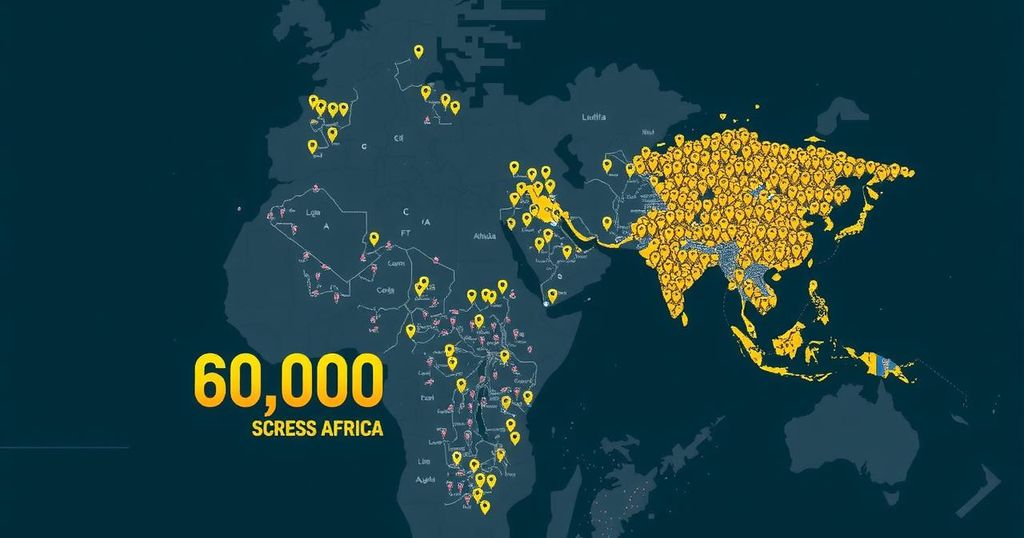Mpox Cases in Africa Exceed 59,000 Amidst Ongoing Outbreaks
As of November 30, 2023, Africa has reported over 59,200 mpox cases in 20 countries, with significant recent increases and ongoing public health concerns identified by the Africa CDC. Central Africa remains the hardest hit region, prompting public health emergencies declared by both the Africa CDC and World Health Organization.
The latest report from the Africa Centers for Disease Control and Prevention (Africa CDC) indicates that mpox cases in Africa have soared to over 59,200 in 2023, affecting 20 countries across the continent. In an online media briefing held on November 30, Ngashi Ngongo, chief of staff at Africa CDC, revealed that 12,938 of these cases have been confirmed and sadly, more than 1,164 lives have been lost to the virus, resulting in a case fatality rate of approximately 2 percent.
The week prior to the briefing alone witnessed 2,680 new cases, comprising 492 confirmed infections and 22 fatalities. The Democratic Republic of the Congo, Uganda, and Burundi are reported to be the regions experiencing the highest rates of new confirmations. Furthermore, Angola marked its first confirmed case on November 16, thus joining the ranks of the affected nations.
Significantly, the outbreak has increased by over 600 percent since last year, with approximately 93.2 percent of all confirmed cases and 99.5 percent of deaths arising predominantly in Central Africa. Following the severe rise in infection rates, the Africa CDC declared the ongoing mpox outbreak a public health emergency of continental security in mid-August, a decision subsequently echoed by the World Health Organization (WHO), which classified mpox as a public health emergency of international concern.
In addition to the African outbreaks, both the United States and Canada reported their initial confirmed cases of mpox linked to recent travel to Africa in November. Mpox, or monkeypox, is a rare viral disease that was first identified in laboratory monkeys in 1958 and is primarily transmitted through body fluids, respiratory droplets, or contaminated surfaces, manifesting in symptoms like fever, rash, and swollen lymph nodes.
Mpox, also known as monkeypox, is a rare viral infection that primarily spreads through direct contact with infected individuals or contaminated materials. The disease was discovered in laboratory monkeys in 1958 and primarily affects regions in Africa, particularly Central Africa, where outbreaks have been more prominent. In recent years, the disease’s prevalence has surged, leading to heightened concern from health organizations such as the Africa CDC and the World Health Organization. As global health agencies respond to the ongoing crisis, awareness and prevention strategies are increasingly critical, particularly given the substantial percentage of cases and deaths occurring in Central Africa.
In summary, the mpox outbreak in Africa has reached alarming levels, with over 59,200 cases reported across 20 countries, and a sharp increase from the previous year. The epicenter of the outbreak remains primarily in Central Africa, raising concerns about public health safety. Given the international implications, it is imperative for global health authorities to prioritize monitoring and containment strategies as the situation evolves.
Original Source: english.news.cn




Post Comment